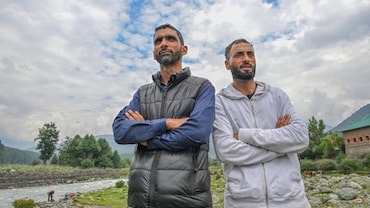- HOME
- /
- True Stories
- /
- My Story
- /
Growing Up Illegitimate: A Life In The Shadow Of Stigma
A woman finds closure by writing about her secret—being born out of wedlock
 Illustration by Atri
Illustration by Atri
Times change and attitudes change, but does the impact of social stigmas on one’s life change as well? I ask this because I am what society calls ‘illegitimate’, a term that brands an individual with the shame of being born out of wedlock, casting a shadow on their identity. Was this my fault? I don’t think it was. But I know that if people found out about this, they would look down on me, and my parents. It makes me wonder—how many people who knew us during the ’70s, ’80s or even the ’90s would have associated themselves with, or acknowledged, our family if they knew this fact?
I was born in 1967 to parents who loved me. How do I know they loved me? Well, if they didn’t, they would have taken the easy way out. They would have aborted me and lived an easy life, free of stigma. But they didn’t. Instead, they decided to try and face society the best way they could and let me come into this world. For this I shall be ever grateful, because today, I have a wonderful husband and two amazing children simply because … they let me live.
I discovered my illegitimacy almost four decades ago, when my mother decided that I should know the truth. I think I was around 13 at the time. I am not sure what I felt when she first broke the news to me. I don’t think I fully realized what it meant. Realistically, I know that it is foolish to blame myself because I didn’t do anything to be born this way, nor did I ask for things to turn out as they did. I cannot help but think about how much the shame of being discovered haunted me for so many years. After all, I was born in India, a country where illegitimacy is considered taboo. At least it was in the 1960s when I was born.
Growing up, my father was very strict, not only with me, but with my mother too. At the time, I thought that he was just being overprotective. He never liked us socializing with the neighbours or me spending time with people my age. Even when he did allow me to go to a movie or for a meal, I had to follow strict curfews and he was very apprehensive if the group included boys. Perhaps he feared that people would find out about our family’s dark secret. When I hear people talking about school and the friends they made, I wonder why I never really had any friends. Was it my illegitimacy that kept me aloof? Maybe even before I found out about it, I still felt I was different from everyone else.
Looking back as an adult, I realize that the small rituals in a marriage, the things that most married people do, were missing in my family. I never saw my parents holding each other or showing their love and affection to each other overtly. My dad never wore a wedding ring (because he wasn’t married). My mother always wore both an engagement ring and a wedding band (but then, she was married, just not to my dad). We never went to family outings, no movies or lunches and dinners together, and no family vacations. We never invited people over and, as a family, we rarely visited anyone. My mum and I would sometimes go over to a neighbour’s house, but my dad never accompanied us. Maybe he did not want to put us in a position where questions might have come up and we would have to lie. I remember I used to long for the summer holidays when two of my cousins would come to visit and how extremely lonely and sad I felt when they left. I guess I had to carry this burden and never had anyone to talk to about it.
 (Left) The author being blessed by her father, Leo Samuels, on the morning of her wedding, 1993; (Right) Her mother, Yvonne Samson, dancing with Samuels at the wedding reception.
(Left) The author being blessed by her father, Leo Samuels, on the morning of her wedding, 1993; (Right) Her mother, Yvonne Samson, dancing with Samuels at the wedding reception.
Years later, when I first met my husband and we knew we were in a serious relationship, I was terrified of revealing the truth. I knew him to be a god-fearing man from a Catholic family with strong ties to their faith. What if my honesty led him to reject me? Even the thought of it was traumatizing. But I was unwilling to start our relationship with a lie and decided to share my secret. To my surprise, he did not turn and run in the opposite direction. In fact, he said he did not think it was my fault and that I was in no way responsible for being illegitimate. While we held back from telling his family, unsure of how they would take it, we never hid this information from our children, who accept this fact, and, regardless, respect me and love me dearly.
When I look at my illegitimacy today, I feel very different from the way I used to feel before I moved out of India. Living with my family in Canada, I feel free, and the chains that kept me tied and scared of being discovered have crumbled to dust. It’s like someone has opened a prison door and told me that I am free to go. Why do I feel this way? Perhaps because I continued to keep the secret until quite recently, out of respect for my parents. I didn’t know how they would react if I was open about it. I thought that if I spoke out, they would feel betrayed, offended and let down. I was afraid that it would make my mother angry and that she might lash out at me. But it has been two years now since my mother passed away (my dad passed away 10 years ago), and so I do not have to pretend anymore.
Without anyone to talk to or relate to, I began researching online about people in similar circumstances. I realized that even though I am illegitimate like so many others in the world, my life was nowhere near as difficult as that of many others. Research done at a centre in Pondicherry shows that out of the 855 births recorded at a clinic under study, 48 were of unmarried mothers. The study also found that around 50 per cent of unwed mothers moved in with the fathers of their children, which is what happened in my case. My parents lived together from the time I was conceived until my dad died in 2009. So I have never known the difficulties of being in a single-parent family. I have not been deprived materially as my dad was well employed and provided for our needs. In fact, we lived a very comfortable life.
Writing this has helped me confront years of emotional turbulence head-on and eventually accept this indelible part of who I am. In the process, I discovered that my whole life I have second-guessed myself, all sense of confidence and assurance buried under self-doubt, the root of which, perhaps, lies in the indignity ascribed to my illegitimacy. I am grateful that I have been able to share this part of my life with others. I know that just by doing this, I am, in fact, healing myself and hopefully, I will become a better, more confident person going forward. One who will not let her illegitimacy get in the way of her life.
AUTHOR’S NOTE
This article was written to honour the memory of my parents and the courage they had to let me live especially in a part of the world where illegitimacy was, and maybe still is, a social taboo. It is not in any way intended to disrespect them.






